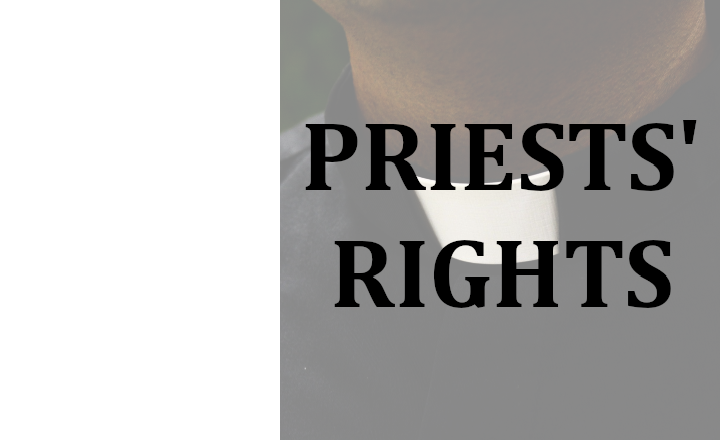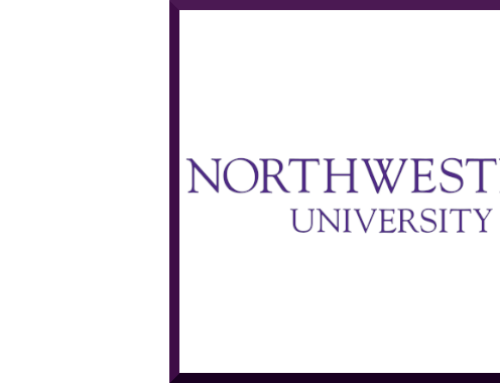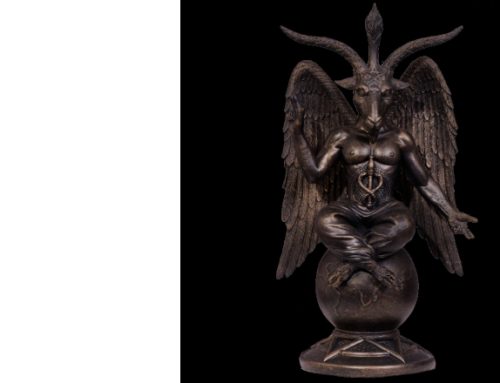Fr. MacRae ties a lot of loose ends together to offer a magnificent piece on what has happened to the rights of priests.
April 2, 2025 by Fr Gordon MacRae and William A. Donohue, PhD
Note from Father Gordon MacRae: This post may not move hearts, but it should move minds and consciences. It is of utmost importance to me, to the priesthood and to the whole Church. So we should not be silent in the face of injustice. So please share this post
On February 22, 2025, the Dicastery for Legislative Texts, the Vatican office responsible for issuing authoritative legal interpretations and directives for the universal Church, published online a long awaited guidance to bishops impacting the due process rights of “credibly accused” Catholic priests.
The announcement underscores the Dicastery’s decision that bishops considering publication of lists of priests deemed credibly accused of sexual abuse are prohibited under Canon Law from doing so. This guidance is for a multitude of reasons connected to long established civil and canonical rights of due process. I will describe below some examples of how these rights have been impacted.
From the point of view of official Church positions, the problem is, and has always been, the bishops’ collective interpretation and use of the term “credible” in their response to the crisis. It is a standard applied nowhere else in the world of civil or criminal jurisprudence. It means only that a claim of abuse cannot be immediately dismissed on its face. If a claimant alleges abuse in a specific community 30 or 40 years ago, for example, and the named priest had once been assigned there, the claim is “credible” unless and until it is disproven.
There is no court in America that admits such a standard of evidence but it is routinely applied now to accused Catholic priests. Courts have long recognized that older memories are highly malleable, and misidentification of the accused is a frequent risk.
Before delving further into this, I want to present a reaction to the Vatican news from William A. Donohue, Ph.D., President of the Catholic League for Religious and Civil Rights, who has consistently defended the due process rights of priests.
From Catholic League President Bill Donohue
Vatican Finally Does Right by Accused Priests
Six years after Pope Francis rejected the practice of publishing the names of accused priests, the Vatican has finally codified his plea. Henceforth, dioceses are discouraged from publishing such a list. Among the reasons cited was the inability of deceased accused priests to defend themselves.
This should never have been an issue in the first place. But in the panic that ensued following the 2002 series in The Boston Globe detailing clergy sexual abuse, the bishops convened in Dallas in 2004 to adopt a charter that listed comprehensive reforms, some of which substantially weakened the rights of the accused.
At the time, I was highly critical of the way some bishops allowed a gay subculture to flourish, one that resulted in a massive cover-up of the sexual abuse of minors (homosexual priests — not pedophiles — were responsible for 8 in 10 cases of abuse). But I also said of the Dallas reforms, “There is a problem regarding the rights of the accused. It appears that the charter may short-circuit some due process rights.”
One of the problems was the desire to publish the names of accused priests. Egging the bishops on was Judge Anne Burke, the first person to head the National Review Board commissioned by the bishops to deal with the problem.
She made it clear that priests — and only priests — should be denied their constitutionally prescribed right to due process. “We understand that it is a violation of the priest’s due process rights — you’re innocent until proven guilty — but we’re talking about the most vulnerable people in our society and those are children,” she said. Such thinking allowed the bishops to make public the names of accused priests.
In an interview I had in my office with a female reporter from CNN, she became quite critical of the Church for not posting the names of accused priests on its diocesan websites. I picked up the phone and, holding it in my hand, asked her for the name and phone number of her boss. When she asked why, I said I was going to accuse her of sexual harassment. I added that I wanted to see if CNN would post her name on its website. She said, “I get it.” I put the phone down. (For more on this see my book, The Truth about Clergy Sexual Abuse).
No organization in the United States, religious or secular, publishes the names of accused employees. That there should be an exception for priests is obscene.
The rights of accused priests need to be safeguarded, and the penalties for those found guilty need to be severe. The Church failed on the latter, which is why the scandal took place, and it failed on the former, which is why Pope Francis, and now the entire Church, had to act.
The sexual abuse of minors in the Church in America has long been checked — almost all the cases in the media are about old cases, and most of the bad guys are dead or out of ministry. Now that the rights of the accused have been given a much needed shot in the arm, we can say with confidence that the problem has been ameliorated.
Now back to Father MacRae…………
But My Diocese Employs “Trauma-Informed” Consultants
On July 31, 2019, Bishop Peter A. Libasci, Bishop of Manchester, New Hampshire proactively published a list of the names and assignment histories of 73 priests in his diocese who had been “credibly” accused of sexual abuse of minors and removed from ministry. Most of the claims deemed “credible” are decades old. The majority of the priests on Bishop Libasci’s list are long deceased. In most cases, the sole condition making the claims “credible” was the fact that money — lots of it — changed hands.
Bishop Libasci’s stated goal for publishing his list was “transparency.” In 2024, long after Pope Francis discouraged bishops from doing so, Bishop Libasci republished the list with the names of additional accused but deceased priests.
Weeks after Bishop Libasci’s original list was publicized in 2019, Ryan A. MacDonald penned and published a contentious objection: “In the Diocese of Manchester, Transparency and a Hit List.” It was contentious because it represented well my disagreement with this action of the bishop of my diocese, something I otherwise hoped to avoid. Plaintiff attorneys and activist groups like SNAP pressured bishops to publish such lists for the purpose of “assuring victims they are not alone and that they are heard.”
The real reason for pushing for published lists, however, was to provide a forum and online database for false “copycat” claims, a lucrative business for contingency lawyers and claimants alike with little or no court oversight. In May 2024, Ryan A. MacDonald published a report on how and why this happens in “To Fleece the Flock: Meet the Trauma-Informed Consultants.” Here is an excerpt from an official statement of my Diocese:
“The Diocese of Manchester provides financial assistance to those who have been harmed, regardless of when abuse occurred, through a process utilizing independent trauma-informed consultants.”
A basic problem with handling the matter of due process for the accused and outcomes for the Diocese by abdicating judgment to “trauma-informed consultants” is that the term is widely noted and critiqued by professionals as highly biased. It has a documented negative impact on judicial fairness and due process of law in claims of sexual abuse and assault.
The Center for Prosecutor Integrity (CPI ) is an organization that seeks to strengthen prosecutorial ethics, promote due process, and end wrongful convictions. Victim-centered investigations, also known in the sex abuse contingency lawyer industry as “trauma-informed,” presume the guilt of all accused and lead to wrongful convictions.
According to the Center’s website, “The most destructive types of victim-centered investigations are known as “Start by Believing,” and “Trauma-Informed.” The Center exhibits a professional bibliography documenting the “junk science” behind such investigations creating an epidemic of false witness and police and prosecutorial misconduct. Given the well-founded caution about false claims and financial scammers, it was alarming to read the following in a recent news article, “Diocese of Manchester Settles Sexual Abuse Claims from the 1970s.” Here’s an excerpt:
“No lawsuit was filed because the alleged abuse happened outside the statute of limitations, but the attorney representing the ‘John Doe’ who was involved said it’s important for survivors to come forward as part of the healing process, … thus announcing a six-figure settlement outside the Diocese of Manchester office.”
Has it never dawned on anyone in Church leadership that there are those in our midst who would find a “six-figure settlement” an enticement for false accusations? This is especially so when there is no court oversight for such claims. The process has been made very simple. A lawyer writes a letter and a bishop writes a check.
In addition to these trauma-informed consultants retained by the Diocese of Manchester and other dioceses,”it seems that civil lawyers and risk managers, not bishops, are often running the show.” So wrote prominent canon lawyer, Michael Mazza, JD, JCD, in a recent First Things article (February 24, 2025): “Who’s Really Calling the Shots at U.S. Diocesan Chanceries?” Mazza concludes:
“ln the wake of the clerical abuse crisis, church leaders may have surrendered too much authority to risk managers focused on eliminating every threat. Seasoned entrepreneurs understand that the moment lawyers run the show, adopting a zero-risk strategy as the business model, the company grinds to a halt. While the surest way for a car company to avoid getting sued is to stop making cars, that strategy is not an option for an institution that has received a divine call to preach the Gospel to all nations. Bishops must recognize this truth and seize the helm with the resolve their office demands.”
The Perspective of a Not-So-Credibly Convicted Priest
My name was on Bishop Libasci’s published list under the unique category, “convicted,” but that was not at all my point of contention with his list. Unlike most of the priests named on that ongoing list, I at least had public charges in a public forum — a 1994 criminal trial — no matter how jaded and unjust it was. The details of those charges and that trial have emerged over time and are also now in public view. They have raised awareness about the absence of truth and the aura of injustice in the forum in which I was condemned and sentenced.
As Ryan A. MacDonald’s article, “In the Diocese of Manchester, Transparency and a Hit List” points out, Bishop Libasci’s predecessor, the late Bishop John B. McCormack, went on record in an unpublished media interview in the aftermath of my trial stating his informed belief that I was falsely accused, wrongly convicted, and should not be in prison. He insisted, however, that this information should never leave his office. These details were exposed in a 2021 post, “Omertà in a Catholic Chancery — Affidavits Expanded.”
Going back even further in this history of neglected due process, Bishop McCormack’s predecessor, the late Bishop Leo O’Neil, chose not to wait for the outcome of a trial. Before my trial commenced, he published an official diocesan press release declaring that I victimized not only my accusers but the entire Catholic Church. After that, a trial seemed just a formality.
The most visible post-trial analysis of due process in the case, however, was that of Dorothy Rabinowitz, awarded a Pulitzer Prize for her courageous exposure of “accusation, false witness, and other terrors of our time.” Her series of articles in The Wall Street Journal culminated in “The Trials of Father MacRae” in 2013, six years before Bishop Libasci published his list.
In a compelling five-minute video interview produced by The Wall Street Journal, Dorothy Rabinowitz saw through all the smoke and mirrors and got to the heart of the matter. It is a brief but bold exposé of unassailable truth that ties the two-decade outbreak of clergy abuse claims to the very unquestioned settlements money promised by my Diocese in its statements above.
I give the last word to “A Video Interview with Dorothy Rabinowitz.”







